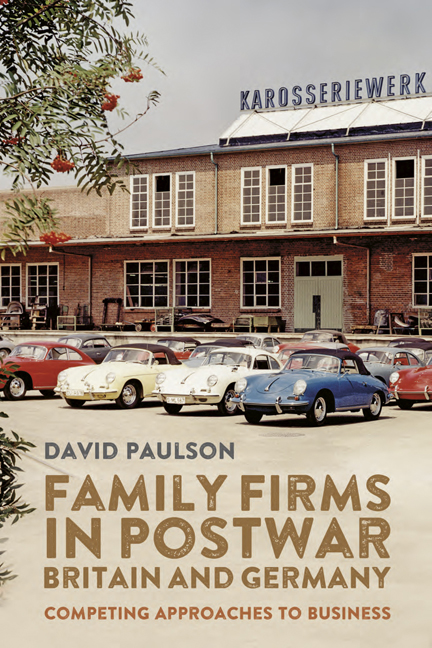9 - RECARO GmbH & Co., Stuttgart
Published online by Cambridge University Press: 10 January 2024
Summary
RECARO Aircraft Seating is a world leader in its market. Consistently innovative, its annual sales exceeded €500 million for the first time in 2018. In 2020 its Economy seating product was awarded the Gold Award of the German Design Council, one of numerous awards won by the company. It belongs to a family business group whose origins date back to 1906 and the foundation of the Stuttgarter Karosseriewerk Reutter. As we will see, business values have been consistent since then, even after one family acquired the business of another. During that period the respective families’ companies have sometimes been very large, with international manufacturing operations. But the commitment to Mittelstand values has remained, and as we will see those values are evident at all points of the history which follows, demonstrating that dynamism and growth are not inconsistent with long-term thinking and humane management.
Company Development, 1906 to 1945
The Stuttgarter Karosseriewerk Reutter & Co. was founded by Wilhelm Reutter, until then a Meister (foreman) in a wagon works, in 1906. In a sign of his intent, the twenty members of staff he had recruited by 1908 “were all specialists: wagon-maker, smith, mechanic, tinsmith and painter.” Wilhelm Reutter's brother Albert joined in 1909 as commercial leader, and their shared product philosophy was “the highest quality, happy customers, and strongly motivated colleagues.” Both men were Pietists, and their religious values permeated the business. Bills were paid on time. Commitments were honoured unfailingly. Hard work was expected of, and delivered by, every member of staff. Employees were of good character and were well looked after. They were also innovative: their Reform-Karosserie, patented in 1909, was the first convertible roof which would allow contemporary limousines to function as both a summer and winter car. It brought Reutter into partnership with well-known automakers in Germany and internationally. During the 1920s Reutter held production licences from foreign makers of limousines as well as producing its own designs. Then, as later, Reutter had to prove itself flexible and adaptive to changing circumstances. While the economy was stagnant they had their carpenters and painters making kitchen cabinets rather than dismissing them and losing their skills
- Type
- Chapter
- Information
- Family Firms in Postwar Britain and GermanyCompeting Approaches to Business, pp. 232 - 263Publisher: Boydell & BrewerPrint publication year: 2023

